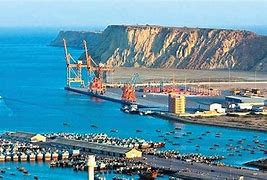In the context of the joint construction of the Belt and Road Initiative and the China-Pakistan Economic Corridor (CPEC), Chinese and Pakistani researchers are helping Pakistan build smarter and safer cities through the use of artificial intelligence (AI) technology.
At the beginning of year 2022, the CPInS Lab was officially established at Pakistan National University of Science and Technology (NUST), with joint efforts of NUST and Guangzhou Institute of Software Application Technology.
At present, various researches are in progress in an orderly manner, Gwadar Pro reported on Sunday.
“We have made great progress in areas such as UAV control systems and AI recognition localisation. Our lab is starting the application of smart cities in Pakistan,” Dr Wu Jun, the Director of CPInS Lab, told Gwadar Pro.
“Through this platform, our mature research results could be deeply connected with local projects in Pakistan, providing smart city-related products and intelligent solutions according to local conditions.
We are able to effectively implement core technologies and products such as smart street lights and smart videos to improve local urban governance ability.”
“Sci-tech cooperation is of great importance to Pakistan’s socio-economic development,” Seemab Latif, Head of the Pakistani side of the lab and Associate Professor at the School of Electrical Engineering and Computer Science (SEECS) at the NUST, indicated that China’s AI industry leads the world, as well as Pakistan’s scientific and technological development has huge potential, thus by deepening bilateral cooperation, Pakistan can make great progress in the field of Sci-Tech, by which own the potential to become an AI development center in South Asia.
According to Latif, that the lab is using technology from China to develop smart city projects such as efficient traffic management systems and infrastructure monitoring systems in Pakistan.
At present, on the basis of local conditions, the license plate recognition system and intelligent security system developed by the lab have begun to be piloted in Pakistan.
“More Pakistani residents will be able to experience the safety and convenience brought by the application of intelligent systems.”
Up to now, the results of cooperation are mushrooming. Dr Wu told the reporter that considering that Pakistan is often threatened by floods, scientists from both sides pooled their wisdom to develop an vital result “UAV-assisted edge framework for real-time disaster management,” which provides a more scientific and effective solution for local flood fight.
Apart from bringing technology overseas, talent exchange and training could be said to be another key purpose of establishing the lab. Nowadays, the lab has recruited four outstanding postdoctoral fellows from Pakistan to work in Guangzhou for a long time, and will continue to recruit students in years to come.
“We are working on a variety of exciting projects with Chinese counterparts, including activity detection, gait recognition, automatic license plate detection and real-time recognition, as well as waste management,” said lab researcher Sahar Ershad.
As an emerging economy, Pakistan’s infrastructure is booming day by day. A large number of road cameras and other equipment have not been intellectualized yet, which shows that the CPInS Lab has a great potential in the future.
Generally speaking, the field of artificial intelligence in Pakistan has not yet formed an industry, but the country is never short on sci-tech talents.
“Through further cooperation with China, Pakistan is fully capable of becoming an artificial intelligence development hub in South Asia and the wider region,” Wu concluded, full of confidence.
















